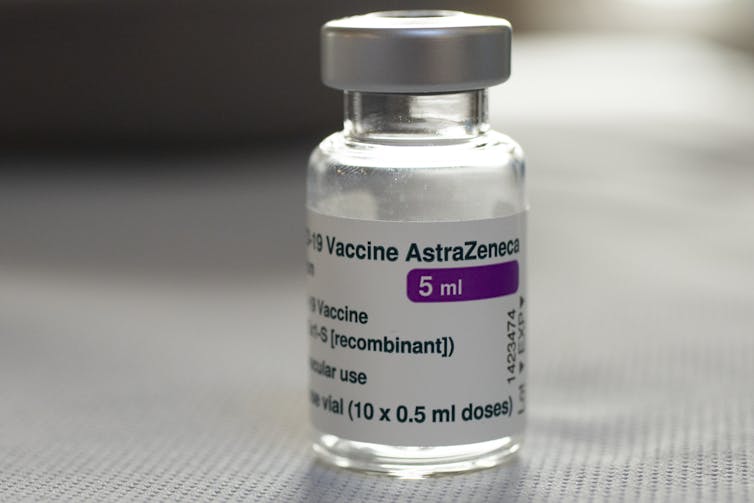Evidence supports mandatory COVID vaccination for aged-care workers. But we need to make it easier too
- Written by Holly Seale, Associate professor, UNSW
National cabinet yesterday announced it will mandate COVID-19 vaccination for residential aged-care workers, with the aim to ensure all aged-care staff have received their first dose by mid-September.
A support package worth A$11 million is intended to facilitate this, by enabling aged-care facilities to provide their staff with paid leave to be vaccinated.
Health department figures released to The Age showed two-thirds of Australian aged-care staff were yet to receive one dose as of last week. Of 263,000 workers, just over 88,000 (33.6%) had received their first shot and about 43,000 (16.3%) had received both doses.
Given the current community transmission across parts of Australia, and the low vaccination rates in this crucial group, it’s perhaps not surprising we’ve seen this policy shift.
Vaccine mandates for Australian health and aged-care workers exist
In Australia, this is not the first time we’ve moved to mandates to improve vaccine uptake among the health- and aged-care sectors.
Many health- and aged-care workers are required to show evidence they’re protected from a range of vaccine-preventable diseases. For example, annual flu vaccines are mandatory for those working in high-risk clinical settings, including staff in NSW Health aged-care facilities. With the introduction of these mandates, we have not documented mass departures of staff.
That said, as Prime Minister Scott Morrison correctly pointed out:
Imposing on a person the requirement to have a vaccine or not be able to work in a particular sector is something that no government would do lightly.
Did we do enough to get to this point?
While Aged & Community Services Australia, the industry peak body, has welcomed the mandate as “the right decision”, others are questioning whether the government has made sufficient efforts to ensure on-site or priority off-site access to vaccination for aged-care staff across all states and territories.
To support vaccination access for the sector, the federal government announced 13 clinics in multiple locations for aged-care staff. But as of May, only three of these pop-up clinics had been established, all of which were in Sydney (in areas covered by the mass vaccination hubs).
 The vaccination rollout in aged-care workers has been incredibly slow.
Peter Dejong/AP
The vaccination rollout in aged-care workers has been incredibly slow.
Peter Dejong/AP
Aged care provider peak bodies Leading Age Services Australia and Aged & Community Services Australia had previously called for more on-site vaccination for aged-care staff, as opposed to having staff members seek vaccination appointments via mass clinics or their GP.
In the aged-care sector, the delivery of vaccination is complicated by variations in staff working hours. Providing the COVID vaccine at their place of work can potentially addresses issues around access to vaccination.
Seeing coworkers getting vaccinated may also help build confidence in those who are sitting on the fence.
Studies have found workplace provision of vaccination plays an important part in the decision to immunise among aged-care workers, with higher vaccination rates in facilities providing on-site vaccination.
Read more: It's crucial we address COVID vaccine hesitancy among health workers. Here's where to start
What we can do alongside the mandate
To support the introduction of this policy, it’s critical we support conversations within aged-care facilities to ensure staff members understand why the shift in policy has occurred, to address any misinformation and to support them to take up the vaccine.
Importantly, Australia’s aged-care workforce reflects the make-up of the broader Australian population. So English may be a second language for a portion of workers.
While efforts have been made to ensure information sheets are available in other languages, booking systems, including the one used to support the pop-up vaccination clinics in Sydney, are only available in English.
We need to be mindful to adopt best practice to support engagement with vaccine services for people from culturally and linguistically diverse communities. Information sessions should be held which allow for questions, and staff should have the opportunity to talk to an immuniser who speaks the same language if needed.
Previous surveys of aged-care staff have also identified some workers have limited computer skills, which may be a barrier to using online booking systems. Support should be available to assist those staff in booking their appointments.
 Research has shown workplace provision of vaccination makes aged-care staff more likely to immunise.
Shutterstock
Research has shown workplace provision of vaccination makes aged-care staff more likely to immunise.
Shutterstock
Concerns have also been raised about the level of funding allocated to support staff members to to take leave to have the vaccine. Australian Nursing and Midwifery Federation federal secretary Annie Butler calculated the A$11 million would give each unvaccinated worker about $A30 per dose.
As Butler noted, this would be nowhere near enough to support time off from work. So this issue needs to be addressed immediately to ensure aged-care workers can take time off if needed to access off-site vaccination appointments, and ideally to recover if they experience any adverse reactions.
Mandates work
The introduction of this mandate aligns with what has been recommended previously to improve influenza vaccination of aged-care staff. Internationally, mandates have been shown to increase vaccine coverage for health workers including for influenza.
It also aligns with our past research on mandatory vaccination of aged-care staff, where we found positive support from stakeholders, including those responsible for developing policy and delivering vaccination programs to aged-care staff.
Beyond aged care, there may be a need to extend mandatory COVID vaccination policies to other health workers including those working in community or disability care, or to staff in hospitals.
However, it’s critical we understand the coverage levels for each of these groups before moving forward, as other strategies including the opportunity for paid time off to receive a vaccine or incentives may assist here, before we need to consider further mandates.
Authors: Holly Seale, Associate professor, UNSW





